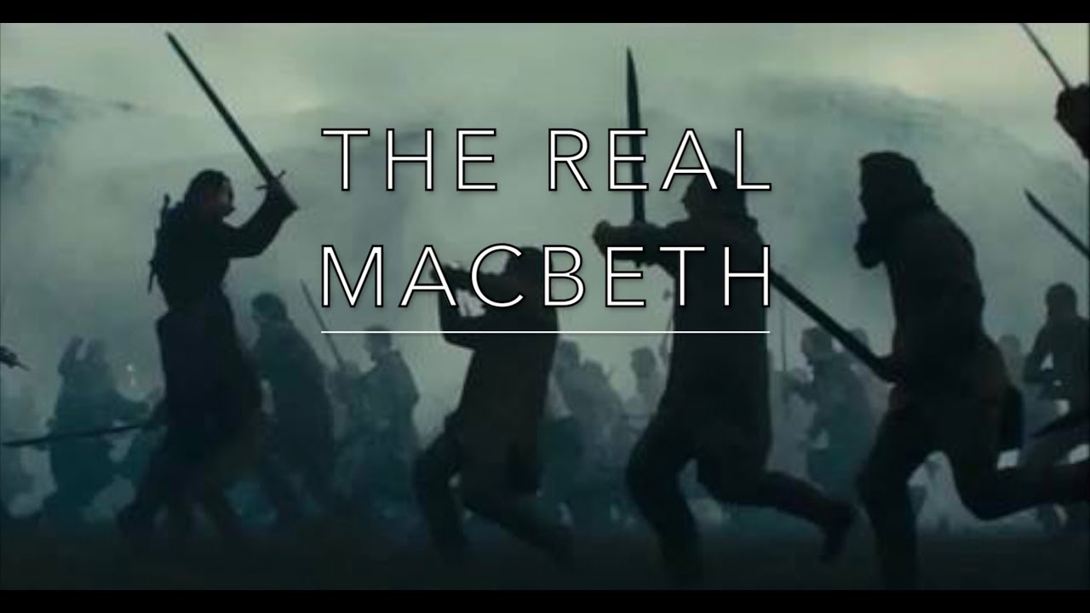Macbeth – forget the numpty Shakespeare, this is no Hollywood story
The real MacBeth is a far cry from silly Willy’s made up stories, in fact, recently there has been an avenue of thought, that Willy did not even write the plays he supposedly wrote! The truth is a far better read than the play …
We don’t know a great deal about the real Macbeth, he lived from 1005-1057. Records suggest his rise to the throne, whose ambition drove him to become ruler of the kingdom of Moray and then the whole of Scotland — a feat achieved over the slain bodies of his enemies. Macbeth ruled a strong Scotland for almost a decade, putting it on the European map as a place of international importance. 11th century Scotland was much different to the one we know today. Alba was the largest and most central part. The Jarldom of Orkney, ruled by the Lord of the Isles, included the Outer Hebrides and the northern tip of the mainland. Strathclyde made up the area running from Glasgow to Penrith (now in England). Moray, where Macbeth’s family ruled, included Inverness and Aberdeenshire right over to the sea on the west coast. Malcolm II was the high king of Scotland when Macbeth was born.
The background stuff … For centuries, the Scots clans had been warring on each other. Vikings had been raiding the coasts of Scotland, King Malcolm of Scotia, king of the Scots and Picts, routed the Angles of Lothian in the Battle of Carham in 1018 and became the most powerful man in Scotland. King Owen of the Britons of Strathclyde died later that year without issue, Duncan (Malcolm’s grandson) became the rightful heir through marriage. Malcolm was therefore able to unite the Four Kingdoms of Scotland under one throne. Scotland in the early 11th century had finally become a single nation. The said Duncan became King of Scotland upon the death of Malcolm in 1034. He was weaker in character than Malcolm and a terrible leader. His cousin MacBeth, chief of the northern Scots, also had a claim to the throne through his mother. MacBeth formed an alliance with one of his cousins, the Earl of Orkney, and they defeated and killed Duncan near Elgin in 1040. Macbeth (Mac Bethad mac Findláich or MacBeth as he is known in English), the Mormaer of Moray, claimed the throne after the death of Duncan, made himself king in his place. Respected for his strong leadership qualities, MacBeth was a wise king who ruled for 17 years. He lived in a fortified castle at Dunsinane north of Perth. His actually went on a pilgrimage to Rome in 1050. Ah but – Duncan’s son Malcolm, had fled to Northumbria after the defeat of his father and had never given up his claim to the throne. In 1054 with the support of Earl Siward, he led an army against MacBeth, defeating him at the battle of Dunsinnan (same place as Dunsinane). MacBeth remained king, restoring Malcolm’s lands to him. But in 1057 at Lumphanan in Aberdeenshire on 15th August, MacBeth was finally defeated and killed and Malcolm became King.
Let’s go back to The Kingdom of Moray – ruled by a mormaer (meaning high steward) and was the position held by Macbeth’s father Findlaech, or Findley. This means Macbeth’s name was quite unusual. ‘Mac’ usually means ‘son of’ — like ‘Macduff’ would mean ‘son of Duff’ — but as Macbeth’s father was called Findley his name meant ‘son of life’. In later life, Macbeth would be known by another name, ‘The furious Red One’, given for his prowess on the blood-splattered battlefield. Despite Malcolm II being the high king, Findley didn’t respect him, tempered by an internal feud when Findley was usurped and murdered by his nephew Gille Coemgáin. The new ruler of Moray would then go on to marry a Scottish princess, Gruoch — from the line of Kenneth III, who Malcolm had killed to assume power. As well as inheriting Moray, their son Lulach could make a claim for the high kingship. If you are not confused by now, you are a better man than me.
Macbeth, Findley’s son wanted to retake Moray, as you would. In 1032, Gille Coemgáin and 50 or so of his followers were locked in a hall that was set alight, roasting all those inside, quite the thing to do in this era Scotland, as the Maclean’s know all about (Islay and the Macdonalds). The fire saw Macbeth’s opposition die gruesomely and he now ruled in Moray. Macbeth also married Gillecomgáin’s widow and took her son as his ward. No sooner was Macbeth king of Moray, his northern border saw the growing power of Earl Thorfinn the Mighty, having clashed with the Jarl of Orkney as the ruler of Moray, his kingship was contested in 1045 by Duncan I’s father, Crinán, abbot of Dunkeld.
Macbeth’s reign also saw the first mention of Normans in Scotland – he took two into his service in 1052. Having left Edward the Confessor, these two knights, Osbern and Hugh, joined Macbeth’s military council. Unfortunately, they were killed at Dunsinane. This battle, against a well-equipped army from England led by Siward, the powerful Earl of Northumbria, some 3,000 Scots and 1,500 English lay dead at the end of the day — a massive butcher’s bill for the era. Macbeth’s kingdom had a big part taken out of it as Siward crowned Duncan’s exiled heir as king of Strathclyde. Malcolm Canmore (meaning the big head), the future Malcolm III, was seeking revenge for his father’s death. He marched into Scotland in 1057 and surprised Macbeth and his men at Lumphanan in Aberdeenshire. Malcolm cornered Macbeth at Lumphanan and after a fierce fight saw the former fall on the battlefield. It seems fitting that Macbeth’s death came by the sword of Duncan I’s son, the child of the very man he killed to take the crown. But Malcolm didn’t take the throne straight away. Lulach, Macbeth’s stepson was taken to Scone by loyal followers and crowned king after his stepfather. Lulach — known as ‘the Unlucky’ —just four months later Malcolm would slay him at Essie in 1058 and take the throne as Malcolm III. King Macbeth was buried on Iona, a burial place of kings but never of usurpers. Whatever you may think of Macbeth as a king, a man, he was a man of his age, I think a good king and di well for Scotland.
TO END my wee documentary of Macbeth; The surname MacBeth is associated with a family of hereditary physicians, thought to have originated in Ireland, who practised medicine for the Lords of the Isles. … The MacBeths/Beatons are sometimes called the “Beaton Medical Kindred”, and they are listed as a sept of the clan Maclean. The direct lineage of the Maclean Chiefs can be traced with confidence as far back Gillean’s 5th great-grandfather, Old Dugald of Scone. Born around 1050, during the reign of Macbeth, Dugald of Scone served as a Judex (or Judge) and was believed to be a Councillor to David I, King of Scots. In ending, I have to utter this phrase yet again “it’s hard to find any time in Scots history, that the Maclean’s were not involved in”.
Image courtesy; https://www.youtube.com/watch?v=arOc933683U S…

